- Home
- Russell Blake
JET - Escape: (Volume 9)
JET - Escape: (Volume 9) Read online
JET IX
Escape
Russell Blake
Copyright © 2015 by Russell Blake. All rights reserved. No part of this book may be used, reproduced or transmitted in any form or by any means, electronic or mechanical, including photocopying, recording, or by any information storage or retrieval system, without the written permission of the publisher, except where permitted by law, or in the case of brief quotations embodied in critical articles and reviews. For information, contact:
[email protected].
Published by
Contents
Books by Russell Blake
About the Author
Chapter 1
Chapter 2
Chapter 3
Chapter 4
Chapter 5
Chapter 6
Chapter 7
Chapter 8
Chapter 9
Chapter 10
Chapter 11
Chapter 12
Chapter 13
Chapter 14
Chapter 15
Chapter 16
Chapter 17
Chapter 18
Chapter 19
Chapter 20
Chapter 21
Chapter 22
Chapter 23
Chapter 24
Chapter 25
Chapter 26
Chapter 27
Chapter 28
Chapter 29
Chapter 30
Chapter 31
Chapter 32
Chapter 33
Chapter 34
Chapter 35
Chapter 36
Chapter 37
Chapter 38
Chapter 39
Chapter 40
Chapter 41
Chapter 42
Chapter 43
Chapter 44
Chapter 45
Chapter 46
Chapter 47
Chapter 48
Chapter 49
Chapter 50
Chapter 51
Chapter 52
Chapter 53
Chapter 54
Chapter 55
Chapter 56
Chapter 57
Chapter 58
Chapter 59
Epilogue
Excerpt from Ramsey’s Gold
Books by Russell Blake
Co-authored with Clive Cussler
THE EYE OF HEAVEN
THE SOLOMON CURSE
Thrillers
FATAL EXCHANGE
THE GERONIMO BREACH
ZERO SUM
THE DELPHI CHRONICLE TRILOGY
THE VOYNICH CYPHER
SILVER JUSTICE
UPON A PALE HORSE
DEADLY CALM
RAMSEY’S GOLD
The Assassin Series
KING OF SWORDS
NIGHT OF THE ASSASSIN
RETURN OF THE ASSASSIN
REVENGE OF THE ASSASSIN
BLOOD OF THE ASSASSIN
REQUIEM FOR THE ASSASSIN
The JET Series
JET
JET II – BETRAYAL
JET III – VENGEANCE
JET IV – RECKONING
JET V – LEGACY
JET VI – JUSTICE
JET VII – SANCTUARY
JET VIII – SURVIVAL
JET IX – ESCAPE
JET – OPS FILES (prequel)
JET – OPS FILES; TERROR ALERT
The BLACK Series
BLACK
BLACK IS BACK
BLACK IS THE NEW BLACK
BLACK TO REALITY
Non Fiction
AN ANGEL WITH FUR
HOW TO SELL A GAZILLION EBOOKS
(while drunk, high or incarcerated)
About the Author
Featured in The Wall Street Journal, The Times, and The Chicago Tribune, Russell Blake is The NY Times and USA Today bestselling author of over thirty-five novels, including Fatal Exchange, The Geronimo Breach, Zero Sum, King of Swords, Night of the Assassin, Revenge of the Assassin, Return of the Assassin, Blood of the Assassin, Requiem for the Assassin, The Delphi Chronicle trilogy, The Voynich Cypher, Silver Justice, JET, JET – Ops Files, JET – Ops Files: Terror Alert, JET II – Betrayal, JET III – Vengeance, JET IV – Reckoning, JET V – Legacy, JET VI – Justice, JET VII – Sanctuary, JET VIII – Survival, JET IX – Escape, Upon a Pale Horse, BLACK, BLACK is Back, BLACK is The New Black, BLACK to Reality, and Deadly Calm.
Non-fiction includes the international bestseller An Angel With Fur (animal biography) and How To Sell A Gazillion eBooks In No Time (even if drunk, high or incarcerated), a parody of all things writing-related.
Blake is co-author of The Eye of Heaven and The Solomon Curse, with legendary author Clive Cussler. Blake’s novel King of Swords has been translated into German, The Voynich Cypher into Bulgarian, and his JET novels into Spanish, German, and Czech.
Blake writes under the moniker R.E. Blake in the NA/YA/Contemporary Romance genres. Novels include Less Than Nothing, More Than Anything, and Best Of Everything.
Having resided in Mexico for a dozen years, Blake enjoys his dogs, fishing, boating, tequila and writing, while battling world domination by clowns. His thoughts, such as they are, can be found at his blog: RussellBlake.com
To get your free copy,
just join my readers’ group here:
http://bit.ly/rb-kos
Chapter 1
Port-au-Prince, Haiti
A balmy evening breeze drifted across Port-au-Prince bay, carrying with it the taint of decaying marine life and the stink of diesel fuel. The only lights visible were the faint lamps on cargo ships anchored far offshore from the port. The sun had set two hours earlier, sinking into the western sea, a crimson fireball extinguishing itself in a daily ritual of renewal. The warm Caribbean washed onto the rocky shore in gentle breaking swells, swirling around the few fishermen still standing in the shallows with makeshift nets, hoping to catch dinner so they wouldn’t have to go home empty-handed to their impoverished families.
A smallish cargo vessel, its seams weeping russet down the welded plates of its navy blue hull, pulled at the dock lines lashed to one of the concrete jetties that jutted into the water. The battered craft was still plying its island trade decades after the end of its useful life, like a fighter in the tenth round, unwilling to go to the mat no matter how many punches land.
Three islanders stood at an iron gate that protected the jetty, laughing and talking as they watched the sparse traffic pass on the waterfront road. A United Nations armored personnel carrier rumbled along, transporting members of the de facto occupation force both resented and feared by the locals.
Music pulsed from a band playing on the seaside terrace of an open-air restaurant down a spit of beach from the wharf. The establishment was little more than a concrete enclosure with a broad overhang crafted from dried palm fronds and scavenged lumber, but popular with the islanders. Steel drums trilled melodically to a reggae rhythm, playing in time to the flickering torches that surrounded the packed dining area.
The patrons smiled and chatted easily in the welcome relief of the trade winds. The beer was cold and the fish fresh, and everyone a local – tourism in Port-au-Prince had declined to an anemic trickle even before the disastrous earthquake that leveled many of its landmarks in 2010, and had now all but vanished. Haiti had been compared unfavorably to a war zone, which wasn’t far from the truth, given the squalor and rampant violence that visited the tropical paradise on a daily basis.
But for the lucky diners, a collection of some of the most prosperous Haitians, those concerns might have been a million miles away as ebony-skinned waiters drifted among them like wraiths, watching for empty bottles or finished platters on the brig
htly colored tables.
A large man in an oversized red silk Hawaiian shirt clapped enthusiastically when the band finished its number, and his companions joined in, the gold of their watches and necklaces gleaming in the torchlight and their smiles so white as to be nearly luminescent. Two young women, dressed provocatively in shorts and tank tops that left nothing to the imagination, toasted each other with the last of their rum and Cokes, beaming at their host. The big islander, Jon Renoir, gave the band leader a thumbs-up and cupped his hands to his mouth so his shouted encouragement could be better heard.
“You boys crazy-good tonight, you are,” Renoir yelled in the Creole that was the predominant language of the island. The steel drummer held up his mallets in salute – Renoir was a powerful figure in Haiti, a crime lord who ran the nearby slum of Cité Soleil, easily the most dangerous enclave in one of the world’s most deadly ports.
Renoir dealt in human traffic, providing children to the clandestine pedophile tourists who braved the nation’s dangers to satisfy their forbidden hunger, as well as methamphetamines and cocaine to the Cité Soleil inhabitants, transshipment of weapons and drugs to and from the U.S., murder for hire, kidnapping, torture, slavery – the full gamut of every imaginable criminal activity. He was an island fixture, a multimillionaire in a land of extreme poverty and, as such, received respect from the staff and band, as well as furtive, averted looks from his fellow diners.
The man next to him, a whippet-thin Rastafarian with a carefully trimmed goatee, wearing a yellow shirt with a graphic of Bob Marley on it, nodded as though Renoir had revealed the secret to eternal life. “They on fire, all right, those boys is.”
Renoir downed the remainder of his bottle of beer and slammed it on the wooden table, glanced at his watch, and signaled to the waiter for the bill. The man scurried over. Renoir threw down a wad of American dollars and then pushed back with a wave to the musicians. The girls drained their drinks with practiced ease, and the one on his right clutched his hand possessively. Renoir’s entourage stood, the distinctive shapes of pistols in the bodyguards’ waistbands barely covered by their shirts, and the band struck up another song as Renoir’s group made their way to the entrance. The restaurant owner, a heavy woman with a scarlet head scarf and a white blouse, approached with her arms outstretched.
“Jon, bless your heart. Always good to see you, it is,” she said with a smile.
The big man hugged her. “Got to do this more often, mama.”
“You come back soon as you want. Always got my best table for you, I do.”
Renoir pressed a twenty-dollar bill into her palm and turned to his goateed companion. “Ate too damn much again, I did.”
“Man got to keep up his strength.”
The young woman who’d been holding Renoir’s hand now took his arm and pulled close to him. Her head barely reached his shoulder. “Tha’s right, honey child, you going to need all of it tonight, you are,” she slurred in a loud stage whisper.
The front of the restaurant was dark, its neon pink and yellow façade barely visible in the gloom. As Renoir’s entourage moved to two copper-colored SUVs, the rumble of a big motor from the end of the street drew their attention. The three bodyguards who framed Renoir and his female company reflexively reached for their pistols. Both SUV engines were running, having gotten a warning call a few minutes earlier, alerting them that Renoir was ready to depart, and the driver of the nearest reacted to the unexpected sound by reaching for a machine pistol that rested on the passenger seat.
Bright spotlights blinked on across the street, blinding the gunmen, and a voice called out over a megaphone.
“Renoir, this is Lieutenant Ponchet of the Port-au-Prince police. Drop your weapons.”
Renoir ducked behind the SUV’s front fender with his date as his gunmen whipped their pistols free. An assault rifle barrage barked from across the road as the police opened fire. The nearest bodyguard screamed as two rounds slammed into his torso and he fell back, squeezing the trigger of his handgun reflexively as he went down. The young woman screamed at the sight of his bloody form next to her, and then the driver emptied his machine pistol at the muzzle flashes and there was a lull in the incoming fire.
Renoir worked a Glock 19 pistol from his belt and signaled to his remaining bodyguards. One of them nodded and took a deep breath. He poked his head from around the fender of the adjacent vehicle and was instantly pummeled with rounds. Renoir swore – the police had to be using night vision scopes, taking no chances, which meant he and his crew had no chance.
The side of the SUV shredded as dozens of slugs tore through it, killing the driver, cutting him nearly in half. Renoir got off several shots of his own, and then the girl screamed again – a stray round had ricocheted from the pavement and hit her in the stomach. She clutched the spreading stain and stared at Renoir with wide, pained eyes, and then closed them with a groan.
Renoir grimaced and moved a few feet to his right, where the engine block and steel tire rims would shield him as he considered his next move. His Rastafarian associate clutched a chrome-plated Desert Eagle .45-caliber pistol, and watched Renoir for a signal of how he wanted to play the situation. All the men in Renoir’s entourage were veterans of countless shanty-town gun battles, so exchanging fire was nothing new to them, but this was the first time they’d been ambushed by heavily armed police. They would all give their lives if he gave the nod – that was how they rolled – but the signal was his to give, and nobody else’s.
Renoir glanced behind him at the restaurant entrance, calculating whether he could make it back inside without being hit. It was a fifty-fifty proposition, but better than the certain death that awaited across the road. He understood how things worked on the island, with as many enemies as he had – the all-out assault on his men told him that he would be summarily executed by his assailants, whether or not they were actually police.
His only hope was to take refuge in the restaurant and then make a break for it down the beach, perhaps swimming to safety to avoid any shooters lying in wait by the water.
The decision was an easy one. He pointed first at the entrance, then at himself, and then motioned to his gunmen to continue engaging the police, his message clear: lay down covering fire while he made his move.
A pause in the onslaught was followed by Renoir’s bodyguards firing at the shadows as he dashed back to the restaurant. Plumes of dirt sprayed the ground where bullets narrowly missed him. The façade erupted in a spray of colored mortar beside the crime lord, goading him to greater speed. He darted through the entryway as rounds whistled around him, and then he was safely behind the cinderblock wall, the panicked eyes of the diners and waiters glued to him: a mountain of a man clutching a gun, panting and sweating as he sized up his escape route through the tables.
More gunfire boomed from outside the entrance, driving him forward toward the band, which had stopped playing as the musicians scrambled behind overturned tables. Gunfire was nothing new in Port-au-Prince, to the point where there was a certain laissez-faire to hearing it a few blocks away; but an armed assault at the front door was a different story, and everyone took cover as best they could.
Renoir pushed through the dining area and hurried to the stage. He stared out over the beach, which was empty save for the fishermen knee-deep in the surf. With a final glance behind him, where the shooting was slowing – presumably as his men died – he ran across the strand toward the water, returning his pistol to his belt as he moved with surprising speed for such a large man.
Fountains of sand geysered next to him and a burst of automatic rifle fire sounded from the side of the restaurant. He ducked instinctively and clumsily zigzagged the remaining way to the water’s edge. The rounds followed him, and when he hit the gentle swell, they tore at the sea around him before stopping as he waded to his chest.
“Renoir, no more warning shots, you hear? Hands up, or the next one’s between your eyes. Serious, I am. You want to die tonight, big mon?” Lieutena
nt Ponchet’s voice rang out from the darkness.
Renoir stopped. If the cop had wanted to kill him, he’d have already blown his head off. So he wanted Renoir alive. Why, Renoir didn’t know, but now that he was in full view of the restaurant’s diners and staff, it was unlikely he’d get a bullet in the spine on the ride to jail.
A wave surged past him, and he took the chance to pull his pistol from his waist while the water obstructed the cop’s view of his hands. He debated a final shoot-out for a split second and then dropped the gun into the sea – leaving the crooked Haitian cops to arrest an unarmed man guilty of nothing but running for his life.
Renoir slowly turned until he was facing the restaurant, hands high over his head. “Ain’t got no gun, I don’t,” he shouted.
Three members of the Haitian police’s elite SWAT team materialized from the side of the building, M16 rifles trained on the big man, and as they neared Renoir, he could see the tension in their faces. The lead man, obviously Ponchet by his bearing, hung back as they approached.
“Come on outta the water, Renoir. We got to cuff you, we do,” Ponchet ordered.
“What’s the charge?”
“Littering. Now out of the water, you. Let’s get this over with.”
“You boys making a big mistake here, you are.”
“Yeah? Maybe.”
“Ain’t got no gun. My people thought you was gangsters trying to kill us. Got no beef with the police, I don’t,” Renoir said as he made his way back onto the beach.
Ponchet nodded, and one of the officers pulled a pair of handcuffs from his belt, the M16 still clutched in his other hand with its ugly snout pointed at Renoir’s head. “Turn around and let’s do this.”
Renoir obliged and stood patiently as the man searched him. Finding nothing, the officer clasped Renoir’s wrists behind him and locked the cuffs in place. Renoir turned toward Ponchet and eyed him in the faint light as the moon peeked between the clouds. “You shot my girl. She wasn’t doing nothing, she wasn’t – just eating dinner.”
Ponchet shrugged. “Plenty more where she came from, what I hear about you.”

 Night of the Assassin
Night of the Assassin Jet
Jet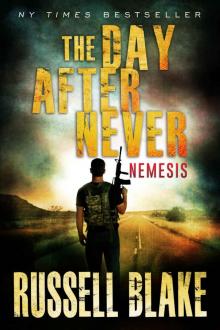 The Day After Never - Nemesis (Post-Apocalyptic Dystopian Thriller - Book 9)
The Day After Never - Nemesis (Post-Apocalyptic Dystopian Thriller - Book 9)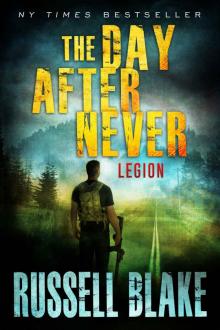 The Day After Never - Legion (Post-Apocalyptic Dystopian Thriller - Book 8)
The Day After Never - Legion (Post-Apocalyptic Dystopian Thriller - Book 8)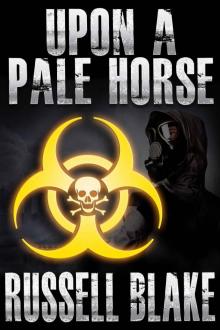 Upon A Pale Horse (Bio-Thriller)
Upon A Pale Horse (Bio-Thriller)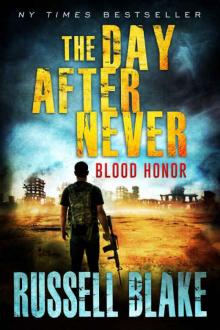 The Day After Never (Book 1): Blood Honor
The Day After Never (Book 1): Blood Honor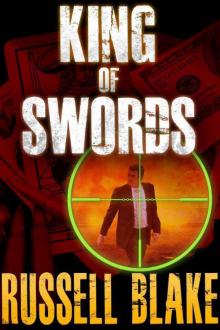 King of Swords a-1
King of Swords a-1 The Day After Never Bundle (First 4 novels)
The Day After Never Bundle (First 4 novels) Emerald Buddha (Drake Ramsey Book 2)
Emerald Buddha (Drake Ramsey Book 2)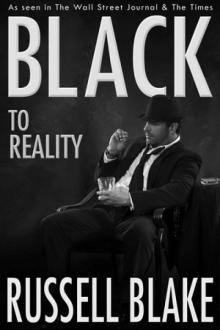 BLACK to Reality
BLACK to Reality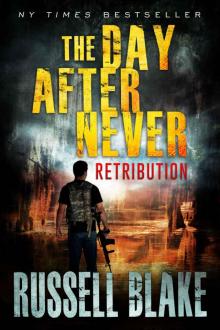 The Day After Never - Retribution (Post-Apocalyptic Dystopian Thriller - Book 4)
The Day After Never - Retribution (Post-Apocalyptic Dystopian Thriller - Book 4) Ramsey's Gold (Drake Ramsey Book 1)
Ramsey's Gold (Drake Ramsey Book 1)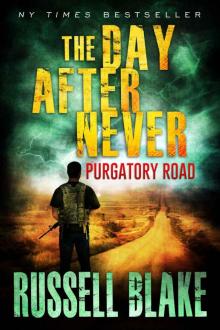 The Day After Never (Book 2): Purgatory Road
The Day After Never (Book 2): Purgatory Road JET - Ops Files
JET - Ops Files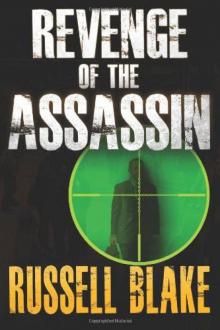 Revenge of the Assassin a-2
Revenge of the Assassin a-2 Requiem for the Assassin - 06
Requiem for the Assassin - 06 The Geronimo Breach
The Geronimo Breach Sahara
Sahara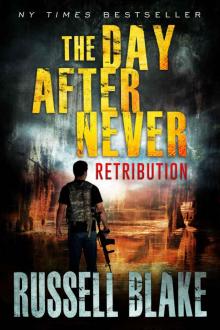 The Day After Never (Book 4): Retribution
The Day After Never (Book 4): Retribution Ops Files II--Terror Alert
Ops Files II--Terror Alert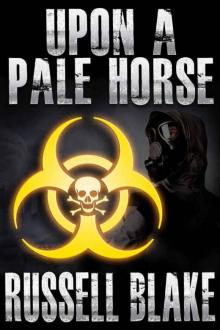 Upon A Pale Horse
Upon A Pale Horse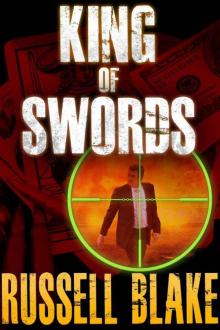 King of Swords (Assassin series #1)
King of Swords (Assassin series #1) A Girl Apart
A Girl Apart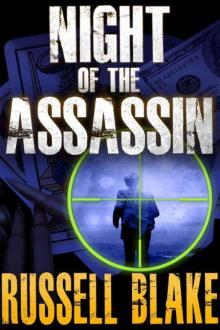 Night of the Assassin: Assassin Series Prequel
Night of the Assassin: Assassin Series Prequel Rage Of The Assassin
Rage Of The Assassin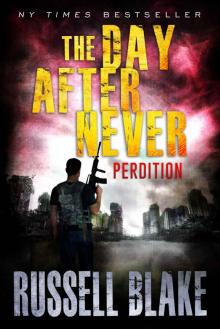 The Day After Never - Perdition (Book 6)
The Day After Never - Perdition (Book 6)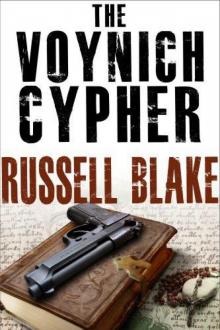 The Voynich Cypher
The Voynich Cypher JET, no. 3
JET, no. 3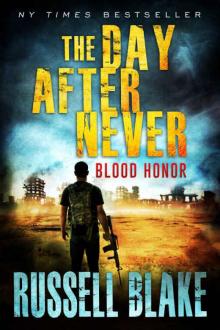 The Day After Never - Blood Honor (Post-Apocalyptic Dystopian Thriller)
The Day After Never - Blood Honor (Post-Apocalyptic Dystopian Thriller) 9 More Killer Thrillers
9 More Killer Thrillers The Goddess Legacy
The Goddess Legacy Fatal Exchange
Fatal Exchange Fatal Exchange (Fatal Series Book 1)
Fatal Exchange (Fatal Series Book 1) JET - Forsaken
JET - Forsaken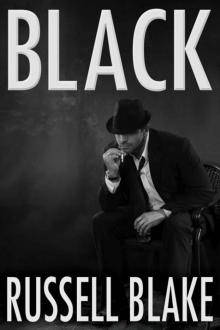 Black
Black Jet j-1
Jet j-1 Betrayal j-2
Betrayal j-2 Jet 04: Reckoning
Jet 04: Reckoning Jet 03: Vengeance
Jet 03: Vengeance Fatal Deception
Fatal Deception A Girl Betrayed (A Leah Mason suspense thriller Book 2)
A Girl Betrayed (A Leah Mason suspense thriller Book 2)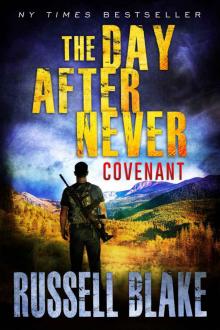 The Day After Never - Covenant (Post-Apocalyptic Dystopian Thriller - Book 3)
The Day After Never - Covenant (Post-Apocalyptic Dystopian Thriller - Book 3)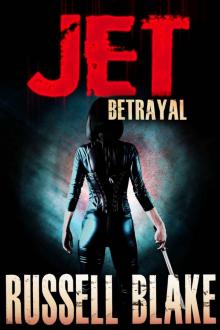 JET II - Betrayal (JET #2)
JET II - Betrayal (JET #2)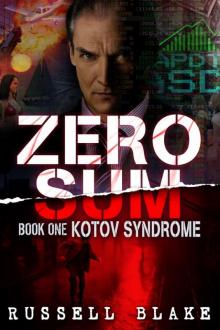 Zero Sum, Book One, Kotov Syndrome
Zero Sum, Book One, Kotov Syndrome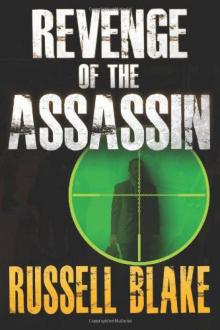 Revenge of the Assassin
Revenge of the Assassin The Day After Never - Insurrection (Book 5)
The Day After Never - Insurrection (Book 5)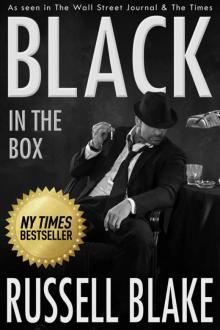 BLACK in the Box
BLACK in the Box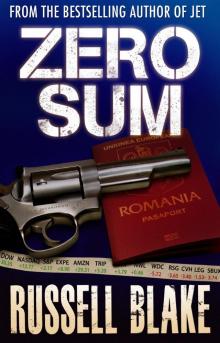 Zero Sum
Zero Sum JET - Escape: (Volume 9)
JET - Escape: (Volume 9) The Manuscript
The Manuscript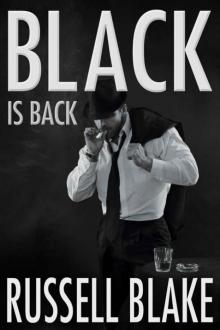 BLACK Is Back
BLACK Is Back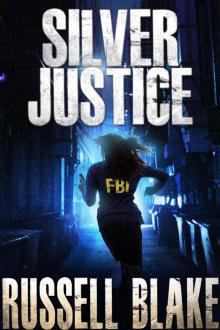 Silver Justice
Silver Justice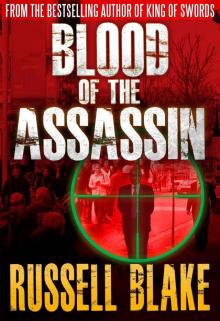 Blood of the Assassin
Blood of the Assassin Rage of the Assassin: (Assassin Series #6)
Rage of the Assassin: (Assassin Series #6)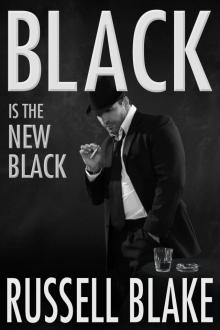 BLACK Is the New Black
BLACK Is the New Black